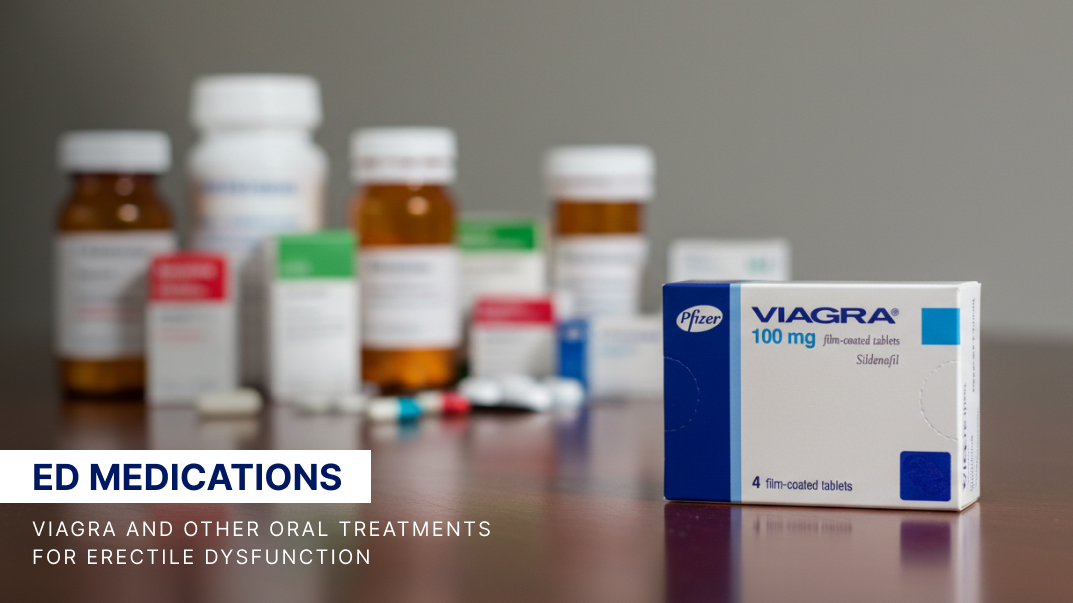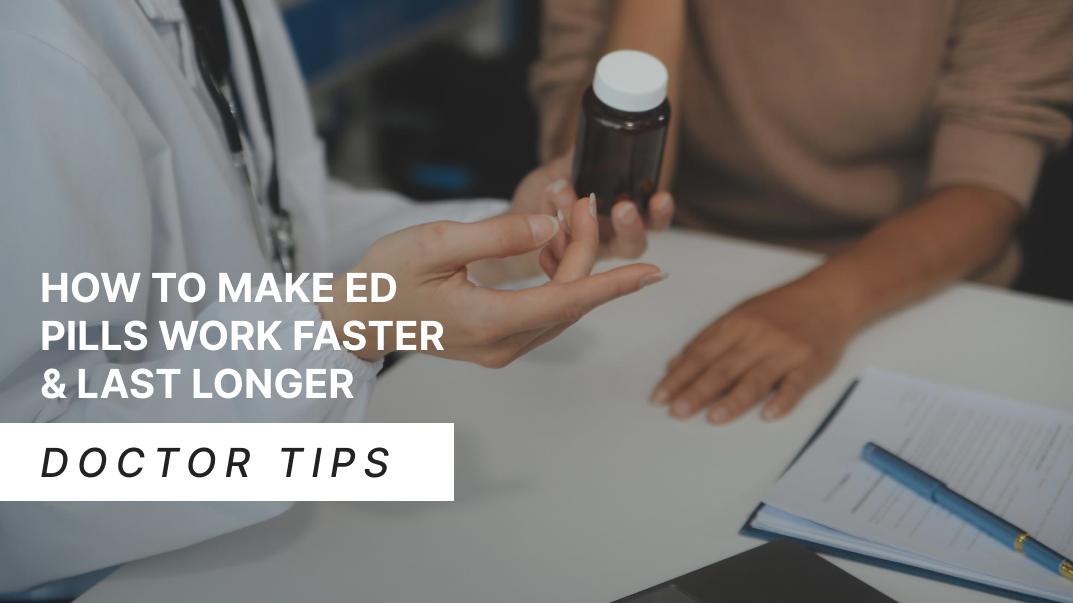Erectile Dysfunction
Erectile Dysfunction (ED) is a common male sensual health condition that affects the ability to achieve or maintain an erection firm enough for sensual activity. ED can occur occasionally or frequently, depending on various physical, psychological, and lifestyle factors. This page provides a detailed, research-based explanation of Erectile Dysfunction, helping readers understand the condition, its causes, available treatments, and when to seek medical support.
At SnovitraSuperPower.com, we provide high-quality, clinically approved ED medicines to help men restore confidence, improve performance, and enhance sensual wellness.
What Is Erectile Dysfunction?
Erectile Dysfunction, also known as impotence, refers to difficulty getting or sustaining an erection. It can affect men of all ages but becomes more common with age due to changes in blood flow, hormones, and overall health.
The condition is medically significant because it may signal underlying health issues such as cardiovascular disease, diabetes, stress, or hormonal imbalance.
ED can significantly impact confidence, relationships, and overall quality of life—but the good news is that it is treatable with the right medications and lifestyle changes.
Trusted ED Medicine Exporters You Can Count On
Premium-quality formulations shipped globally with reliable and compliant export support.
How an Erection Works
To understand ED, it’s useful to know how an erection normally occurs. An erection is the result of a complex interaction between the brain, nerves, hormones, blood vessels, and muscles. When sensual stimulation occurs:
Nerve signals travel from the brain to the penis
Blood flow increases into the penile tissues
The muscles relax, allowing expansion
Blood becomes trapped in the chambers, creating firmness
Any disruption in this process—whether psychological, physical, or hormonal—can lead to Erectile Dysfunction.
Common Causes of Erectile Dysfunction
Erectile Dysfunction can result from a combination of physical, psychological, and lifestyle factors. Understanding these causes is essential for identifying the underlying issues and determining appropriate treatment.
Physical factors play a major role in ED, particularly conditions that affect blood flow, nerve function, or hormone levels. High blood pressure, heart disease, diabetes, and high cholesterol can restrict blood circulation, making it difficult to achieve or maintain an erection. Obesity and hormonal imbalances, such as low testosterone, may also contribute. Additionally, neurological disorders or injuries to the penis or pelvic region can directly impair erectile function.
Psychological factors can trigger or worsen ED, often affecting younger men or cases of situational erectile dysfunction. Stress, anxiety, depression, and relationship issues can interfere with sexual arousal and performance. Performance pressure, fear of sexual failure, or emotional strain can also prevent the brain from sending proper signals to initiate an erection.
Certain lifestyle habits can significantly influence sexual health and contribute to ED. Smoking, excessive alcohol consumption, and drug or substance use can impair blood flow and vascular health. A sedentary lifestyle, poor sleep patterns, and chronic fatigue may also reduce sexual performance. Adopting healthier habits can improve circulation, hormone balance, and overall erectile function.
Symptoms of Erectile Dysfunction
The symptoms of Erectile Dysfunction can vary in intensity and frequency, but common signs include difficulty achieving an erection, inability to maintain an erection long enough for sensual activity, and a reduced sensual desire.
Men may also experience anxiety or frustration during sensual activity and find it challenging to achieve sensual satisfaction. Persistent or recurring symptoms often indicate an underlying medical or psychological condition, highlighting the importance of timely evaluation by a healthcare professional.
Diagnosis of Erectile Dysfunction
A proper diagnosis of ED requires a thorough medical evaluation. Physicians typically begin by reviewing the patient’s medical history and performing a physical examination. Blood tests may be conducted to assess hormone levels, cholesterol, and blood sugar, while urine tests can help detect underlying conditions.
In some cases, psychological assessments are performed to evaluate stress, anxiety, or depression that could contribute to ED. Ultrasound imaging may also be used to measure blood flow to the penis. Identifying the root cause is critical for determining the most effective treatment plan.
Treatment Options for Erectile Dysfunction
The treatment of ED depends largely on the underlying cause and may involve lifestyle modifications, medications, or medical procedures.
Lifestyle improvements are often recommended as the first step in managing ED. Regular physical activity, a balanced and nutritious diet, and weight management can enhance blood circulation and overall health. Reducing alcohol intake, quitting smoking, and implementing stress-reduction strategies also play a significant role in improving sexual function.
Clinically approved oral medications, known as PDE5 inhibitors, are widely used to improve blood flow to the penis. Common examples include Sildenafil (Generic Viagra), Tadalafil (Generic Cialis), and Vardenafil (Generic Levitra). These medications facilitate the natural erectile process during sexual stimulation and are effective for many men.
Men with low testosterone levels may benefit from testosterone replacement therapy, prescribed and monitored by a healthcare professional. Hormone therapy can help restore sexual desire and improve erectile function in men with clinically confirmed hormonal deficiencies.
For ED with a psychological component, such as stress, anxiety, or relationship difficulties, therapy or counseling can be highly effective. Addressing emotional and cognitive factors may improve sexual performance and overall mental well-being.
Vacuum erection devices are mechanical tools that create negative pressure around the penis, drawing blood into the tissues and facilitating an erection. These devices are often recommended when oral medications are ineffective or unsuitable.
In cases where oral treatments do not produce satisfactory results, medications such as alprostadil may be administered via penile injections or urethral suppositories to stimulate an erection.
For severe or treatment-resistant ED, surgical options may be considered. These include penile implants or vascular surgeries aimed at improving blood flow or structural support within the penis.
Complications Associated With ED
Untreated ED can have significant physical, emotional, and social consequences. Men may experience a reduced quality of life, relationship difficulties, and decreased confidence. Chronic stress, anxiety, or depression can worsen over time, and underlying medical conditions—such as cardiovascular disease—may go undetected. Because ED can sometimes serve as an early warning sign of heart or vascular problems, timely medical evaluation is essential.
Prevention & Long-Term Management
Although not all cases of ED can be prevented, adopting certain healthy habits may reduce risk and improve long-term sensual health. Maintaining a healthy weight, staying physically active, managing blood sugar and blood pressure, and avoiding tobacco and excessive alcohol are foundational strategies.
Equally important is managing stress and anxiety and attending regular medical checkups. Early intervention, lifestyle adjustments, and ongoing monitoring can help preserve erectile function and overall well-being over time.
Conclusion
At SnovitraSuperPower.com, we are dedicated to supplying premium-quality Erectile Dysfunction tablets to buyers worldwide. From Sildenafil to Tadalafil and Vardenafil, we offer clinically trusted formulations that help men achieve stronger erections, improved stamina, and renewed sensual confidence.
With certified manufacturing and Exporting, competitive export pricing, and global delivery, we serve pharmacies, wholesalers, distributors, and individual buyers with complete reliability.
Contact India’s Trusted ED Medicine Exporter now
Medical Disclaimer: The information provided is for educational purposes only and should not replace medical advice. Always consult a licensed healthcare provider before using or changing any ED medication.
Global-Standard Quality:
Delivering premium ED formulations trusted across international markets.
Reliable Export Support:
Smooth documentation, dependable logistics, and on-time delivery.
Worldwide Compliance Ready:
Manufactured under strict regulatory guidelines for global acceptance.
Partner-Centric Services:
End-to-end support to strengthen long-term business relationships.
Your Partner for Global ED medicine Supply
Get consistent, high-standard ED tablets backed by a smooth and professional export process.
Connect With Our Export Experts For Free Consultations
We offer a wide range of men’s health tablets, each formulated to meet specific sensual health needs:
Sildenafil Citrate Tablets (Generic Viagra)
Best For: Trusted for improving erection quality and sensual satisfaction.
Strengths: 25mg, 50mg, 100mg, 120mg
Sildenafil Citrate Tablets (Generic Viagra)
Sildenafil citrate is one of the most prescribed ED medicines for men. It helps men achieve firmer, lasting erections and is a top choice for buyers globally.
Tadalafil Tablets (Generic Cialis)
Best For: Long-lasting effect for sustained sensual confidence.
Strengths: 5mg, 10mg, 20mg, 40mg
Tadalafil Tablets (Generic Cialis)
Tadalafil offers unmatched endurance and long duration, making it ideal for men seeking more natural, long-lasting performance.
Vardenafil Tablets (Generic Levitra)
Best For: Clinically proven to improve erectile response and enhance performance.
Strengths: 10mg, 20mg
Vardenafil Tablets (Generic Levitra)
Vardenafil is valued for its quick results and strong effectiveness for men who need rapid performance support.
Dapoxetine Tablets for PE (Timing Tablets)
Best For: Effective treatment for premature ejaculation and stamina control.
Strengths: 30mg, 60mg
Dapoxetine Tablets for PE (Timing Tablets)
Dapoxetine helps improve timing, stamina, and endurance. Works effectively alone or in ED + PE combination tablets.
Frequently Asked Questions
Erectile Dysfunction, or ED, is the inability to achieve or maintain an erection sufficient for sexual activity. It can occur occasionally or frequently and may be influenced by physical, psychological, or lifestyle factors. ED is common in men of all ages, but its prevalence increases with age.
ED can be caused by multiple factors, including physical conditions like diabetes, high blood pressure, heart disease, hormonal imbalances, and neurological disorders. Psychological issues such as stress, anxiety, depression, and relationship problems can also contribute. Lifestyle factors like smoking, excessive alcohol use, poor diet, lack of exercise, and inadequate sleep may further increase the risk.
ED affects millions of men worldwide. Studies suggest that about 40% of men experience some degree of ED by age 40, and the prevalence increases to nearly 70% in men over 70. Occasional difficulties with erections are common and may not indicate a medical problem.
Common symptoms include difficulty achieving an erection, trouble maintaining an erection during sexual activity, reduced sexual desire, anxiety during intercourse, and difficulty achieving sexual satisfaction. Persistent or recurring symptoms usually warrant medical evaluation.
Diagnosis typically involves a medical history review, physical examination, and blood tests to check hormone levels, cholesterol, and blood sugar. Additional tests may include urine analysis, psychological assessment, and imaging such as penile ultrasound to evaluate blood flow.
Treatment depends on the underlying cause and may include lifestyle changes, oral medications (such as Sildenafil, Tadalafil, or Vardenafil), hormone therapy, counseling, vacuum erection devices, penile injections or suppositories, and in severe cases, surgical interventions like penile implants.
Yes. Regular exercise, a balanced diet, maintaining a healthy weight, quitting smoking, limiting alcohol, reducing stress, and getting adequate sleep can all improve erectile function and overall sexual health.
Oral medications like PDE5 inhibitors are generally safe when prescribed by a healthcare professional. However, they may interact with certain medications or be unsuitable for men with specific heart or blood pressure conditions. Always consult a doctor before starting any ED treatment.
Absolutely. Stress, anxiety, depression, performance pressure, and relationship issues can all interfere with sexual arousal and erections. Counseling or therapy is often effective when psychological factors are involved.
In some cases, yes. ED can be an early warning sign of cardiovascular disease, diabetes, or hormonal imbalances. Persistent erectile difficulties should always be evaluated by a healthcare professional to rule out underlying medical conditions.



